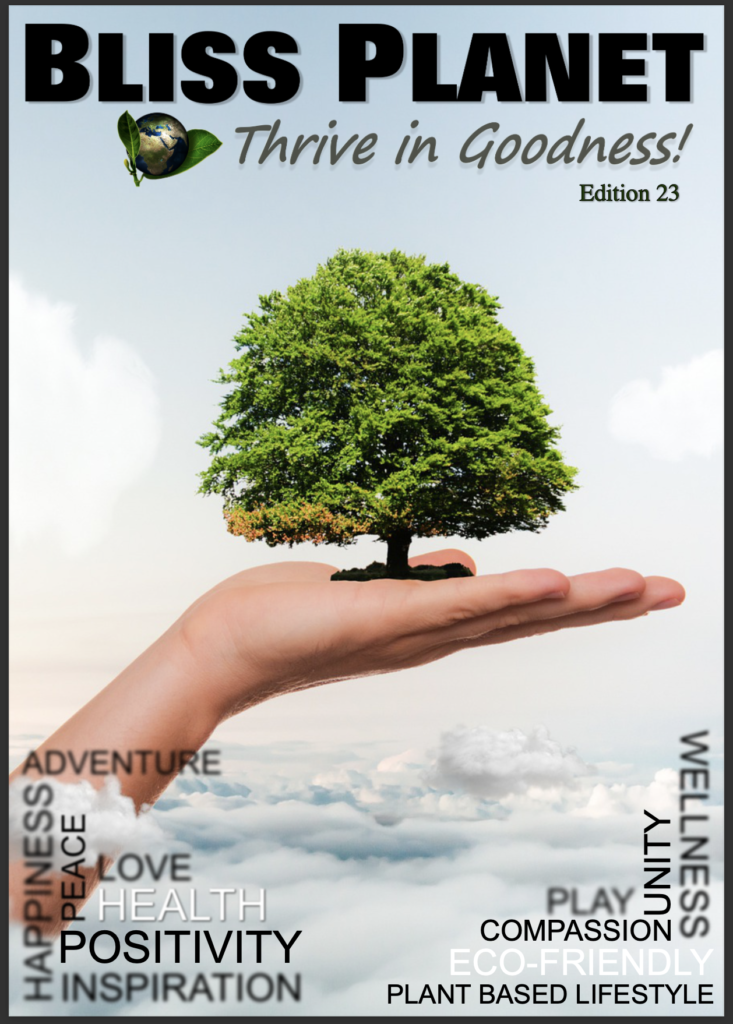Photo by Stefan Keller
As compassionate people who want to make the best of our lives we realize that world peace is not just a far-fetched dream. We understand it starts from within – with our inner peace. It is a state of mind that is reflected in our actions and interactions with others. Inner peace is not a one-time achievement; it is a continuous journey that requires self-reflection, mindfulness, and self-awareness. In this blog post, we will explore how our inner peace impacts world peace and how we can cultivate it.
Understanding Inner Peace
Inner peace is often described as a state of calmness, tranquility, and harmony within oneself. It is a state of mind that is free from negative thoughts, worries, and anxieties. Inner peace is not just a lack of conflict or chaos; it is a deep sense of contentment and fulfillment that comes from within. When we have inner peace, we are better equipped to handle the challenges and stresses of life. We can approach them with a clear and calm mind and find solutions that are beneficial for all parties involved.
However, achieving inner peace is not easy. It requires us to let go of our ego, our fears, and our attachments. We need to be willing to face our inner demons, our insecurities, and our negative emotions. It takes time, effort, and patience to cultivate inner peace.
But why is inner peace important? How does it impact world peace? Let’s explore these questions in the next few sections.
Inner Peace and Personal Relationships
One of the most significant ways in which our inner peace impacts world peace is through our personal relationships. When we have inner peace, we are more compassionate, understanding, and empathetic towards others. We are less likely to judge, criticize, or blame others for their mistakes or shortcomings. We can communicate our needs and concerns more effectively without resorting to anger, aggression, or violence.
On the other hand, when we lack inner peace, we are more likely to be reactive, defensive, or hostile towards others. We may hold grudges, harbor resentments, or seek revenge. We may engage in verbal or physical fights, which can escalate into larger conflicts.
Therefore, cultivating inner peace can help us build stronger and healthier relationships with our family, friends, and colleagues. It can also inspire others to follow our example and cultivate their inner peace.
Inner Peace and Conflict Resolution
Another way in which our inner peace impacts world peace is through conflict resolution. When we have inner peace, we are better equipped to resolve conflicts in a peaceful and constructive manner. We can listen to the other party’s perspective, acknowledge their feelings, and find common ground. We can negotiate and compromise without feeling threatened or defensive.
On the other hand, when we lack inner peace, we may escalate conflicts by using force, manipulation, or coercion. We may refuse to listen to the other party’s perspective, dismiss their feelings, or impose our own agenda. We may use threats or ultimatums, which can lead to more significant conflicts.
Therefore, cultivating inner peace can help us become better conflict resolvers, both in our personal and professional lives. It can also inspire us to seek non-violent and peaceful solutions to larger conflicts, such as those between countries or communities.
Inner Peace and Emotional Intelligence
Emotional intelligence is the ability to recognize, understand, and manage our own emotions and those of others. It is a crucial skill for building healthy relationships, resolving conflicts, and achieving personal and professional success. Inner peace is closely related to emotional intelligence, as it enables us to regulate our emotions and respond to others’ emotions in a mindful and compassionate way.
When we have inner peace, we are more aware of our emotions and their impact on our behavior. We can identify our triggers, manage our stress, and express our emotions in a healthy and constructive way. We can also recognize others’ emotions and respond to them with empathy and kindness.
On the other hand, when we lack inner peace, we may struggle to control our emotions and react impulsively or irrationally. We may be insensitive to others’ emotions and dismiss their feelings as irrelevant or irrational.
Therefore, cultivating inner peace can help us develop our emotional intelligence and become more mindful, compassionate, and empathetic individuals.
Inner Peace and Mindfulness
Mindfulness is the practice of being fully present and aware of our thoughts, feelings, and surroundings. It is a powerful tool for cultivating inner peace, as it enables us to observe our thoughts and emotions without judging or reacting to them. Mindfulness also helps us stay focused on the present moment, rather than dwelling on the past or worrying about the future.
When we have inner peace, we are more mindful and present in our daily lives. We can enjoy simple things, such as a beautiful sunset or a warm cup of tea, without feeling restless or distracted. We can also handle stressful situations with more ease and grace, as negative thoughts or emotions does not overwhelm us.
When we lack inner peace, we may struggle to stay focused or present in our daily lives. Our thoughts and emotions, which can lead to anxiety or depression may easily distract or overwhelm us.
Therefore, cultivating inner peace and self love can help us become more mindful, present, and grateful individuals who appreciate the beauty and richness of life.
Inner Peace and Compassion
Compassion is the ability to feel empathy and kindness towards others, especially those who are suffering or in need. It is a fundamental aspect of inner peace, as it enables us to connect with others on a deeper level and create a sense of community and belonging.
When we have inner peace, we are more compassionate and kind towards others. We can feel their pain and suffering and offer them support and comfort. We can also celebrate their joys and successes and share in their happiness.
When we lack inner peace, we may be indifferent or hostile towards others, especially those who differ from us. We may judge, criticize, or discriminate against them, which can lead to social isolation or conflict.
Therefore, cultivating inner peace can help us become more compassionate, kind, and inclusive individuals who value diversity and respect others’ rights and dignity.
Inner Peace and Global Consciousness
Global consciousness is the awareness of our interconnectedness and interdependence as a global community. It is a crucial aspect of world peace, as it enables us to recognize our common humanity and work towards a shared vision of a better world.
When we have inner peace, we are more aware of our role in the global community and our responsibility towards others. We can see beyond our individual needs and desires and work towards common goals that benefit all humanity. We can also recognize the impact of our actions on the environment and the future generations and take steps to mitigate them.
On the other hand, when we lack inner peace, we may be selfish or apathetic towards global issues, such as poverty, inequality, or climate change. We may prioritize our own interests over the common good, which can lead to social, economic, or environmental crises.
Therefore, cultivating inner peace can help us become more globally conscious and responsible citizens, who work towards a sustainable and peaceful world for all.
Inner Peace and Collective Action
Collective action is the coordinated effort of individuals and groups to achieve common goals and address social or political issues. It is a critical aspect of world peace, as it enables us to mobilize our resources and talents towards shared objectives.
When we have inner peace, we are more likely to take part in collective action and contribute to positive social change. We can collaborate with others, share our skills and knowledge, and take risks for a common cause. We can also inspire others to join us and create a ripple effect of positive change.
When we lack inner peace, we may be hesitant or resistant to collective action. We may feel overwhelmed by the challenges or skeptical about the effectiveness of our efforts.
Therefore, cultivating inner peace can help us become more proactive and engaged citizens, who work towards a more just, peaceful, and sustainable world.
Conclusion
In conclusion, our inner peace affects world peace in many ways. It affects our personal relationships, conflict resolution, emotional intelligence, mindfulness, compassion, global consciousness, and collective action. Cultivating inner peace is not just a personal goal; it is a global responsibility. As compassionate people who want to make the best of our lives we can start by cultivating our inner peace and inspiring others to do the same. We can work towards a world that is more peaceful, just, and sustainable for all.






We often hear the phrase “world peace”, but is it really achievable? Could our individual inner peace contribute meaningfully to global peace? We believe it can. In this article, we’ll discuss the connection between our inner peace and the world’s peace, exploring how we can all make a positive difference in our own lives while also creating a more harmonious world.
The Power of Our Thoughts
Our thoughts are incredibly powerful. They shape our beliefs, our perspectives, and our behavior. When we take the time to cultivate inner peace, we create a ripple effect of positive energy that can be felt far beyond our immediate circle. Our thoughts are like vibrations that reach out and touch other people, creating a harmonious resonance that contributes to peace in the world.
When we make a conscious effort to focus on the peace within ourselves, we can make a difference in the lives of those around us. We might not be able to solve all the world’s problems, but our inner peace can have a positive effect on the people we interact with every day. We can smile genuinely, be kind and generous, and create a more peaceful environment in our daily lives.
Leading by Example
We can also lead by example in our own lives. When we practice peace and kindness in our daily actions, it can be contagious. Our friends, family, and colleagues will recognize our commitment to inner peace and be inspired to do the same. We can show others that peace is possible and that it’s possible to make a positive difference in the world.
By being an example of inner peace, we can create more harmonious relationships in our lives and in our communities. We can also help to reduce violence and intolerance in our society. When we make an effort to practice peace and understanding, it can help to create a more peaceful world.
How We Can Help
There are a variety of ways we can contribute to world peace. We can start by making a conscious effort to cultivate peace within ourselves. We can practice self-care, such as meditation, yoga, and mindful eating. We can also commit to a vegan lifestyle and express our compassion for all living beings.
We can also support organizations that are making a difference in the world. We can volunteer our time, donate money, or spread awareness about causes that are We can also join peace marches and protests to show our commitment to a more peaceful world.
Conclusion
Inner peace is a powerful force that can create a more peaceful, and actions can make a positive difference in the lives of those around us. We can lead by example, cultivate peace within ourselves, and support organizations that are making a difference. By doing so, we can all contribute meaningfully to global peace.
So let’s take action to create a more peaceful world. Let’s take the time to cultivate inner peace and be an example of peace and understanding. Let’s make a difference in our own lives and in the lives of those around us.